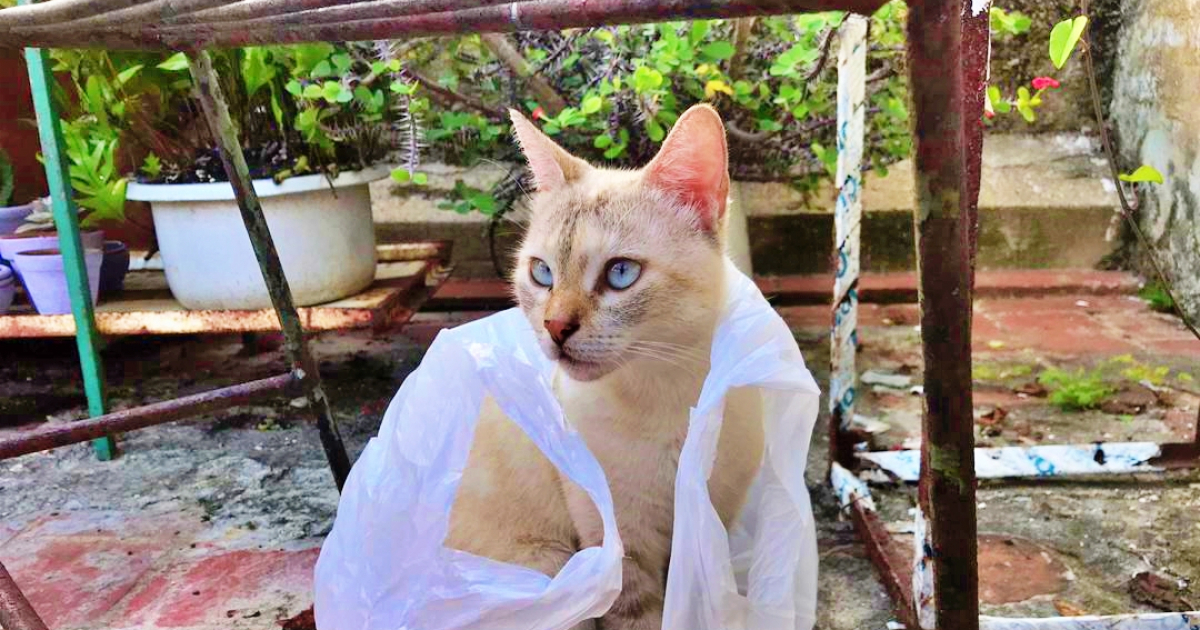
Related videos:
The intensification of the economic crisis in Cuba has led to unusual actions, such as the hunting of dogs and cats for consumption, alarming animal advocates who highlight the lack of protection for pets in a country with weak laws against mistreatment.
The multimedia platform El Toque published an extensive journalistic piece highlighting how the consumption of cats has increased in the province of Guantánamo.
"The normalization of these events has raised concerns, especially among animal protection societies in the province and pet owners," the website noted, warning that some individuals fear for the safety of their animals and choose to keep them at home for protection.
This article addresses issues related to the mistreatment and consumption of domestic animals in Cuba. Some descriptions may be disturbing for certain readers, especially those sensitive to violence against animals. Discretion is advised.
In this regard, she referenced Mayte, a member of BAC (Animal Welfare Cuba), who explained that she doesn't allow her cats to go out into the garden for fear of them being stolen and prefers to keep them safe inside the house. She stated that this is the only measure that has thus far kept pets safe in Guantánamo.
The promotion of cat meat sales on social media, along with the inaction of legal and health authorities, has sparked outrage and concern both within this animal shelter and among other residents of the province.
Furthermore, the increase in individuals hunting, stealing, and consuming pets for meat in Cuba is alarming, reflecting the severity of the economic crisis the country is facing, particularly in vulnerable areas, noted El Toque.
The website reported that neighborhoods such as "La Loma del Chivo," "El Bayamo," and "Polvo en el Viento" in Guantánamo are recognized as centers for the theft and sale of cats, as well as their consumption.
A young man who spent many years hunting and selling cat meat reported to the cited website that this practice has increased in Guantánamo due to “the economic inability to access other sources of protein.”
From anonymity, he recounted that, over time, his neighbors learned about his activities and, sharing the same poverty, began to make requests of him.
He pointed out that cat meat is also sold in Guantánamo due to the popular belief that soup made from its head has healing properties for neurological diseases and arthritis, a practice passed down through generations.
Until a few months ago, cat meat was sold in secret, but by the end of February 2024, explicit advertisements for its sale went viral on social media in Guantánamo, revealing the actual prevalence of this practice in the province.
“Cat meat and its consumers reflect the food shortages faced by the Cuban people and the alternatives they find in the face of hunger. However, this desperate measure, far from being a solution, creates significant problems,” noted El Toque.
In addition to being a taboo food due to the fact that they are companion animals, the consumption of cat meat poses health risks, as felines can carry toxoplasmosis, rabies, and parasitic diseases transmissible to humans.
The issue raises significant concern among animal welfare advocates, who believe that Decree Law 31/2021 (Animal Welfare Law) is effectively "dead letter" due to insufficient penalties and ineffective regulations, as evidenced by the ongoing reports of animal abuse on social media.
For instance, the organization CEDA (Cubans in Defense of Animals) issued a call on Facebook this Wednesday for people to report any advertising, commercial, or suspicious activities involving animals.
"Let us do everything in our power to stop the barbarity and ensure that it does not become normalized in any way. Speak out, and let us use the mechanisms at our disposal until we are exhausted," he emphasized.
In April, the regime could not conceal an incident of this nature that occurred in the province of Mayabeque.
The Cuban government addressed the posts circulating on social media regarding the sacrifice of dogs for meat in some areas of the province.
An informative note signed by the Ministry of Agriculture addressed some incidents related to animal welfare that occurred in the municipality of San José de las Lajas, Mayabeque, which drew the authorities' attention due to their dissemination on social media.
Cubans who purchased that meat and activists from the province of Mayabeque filed a formal complaint with local authorities against those involved in the slaughter of these animals for sale.
Filed under: